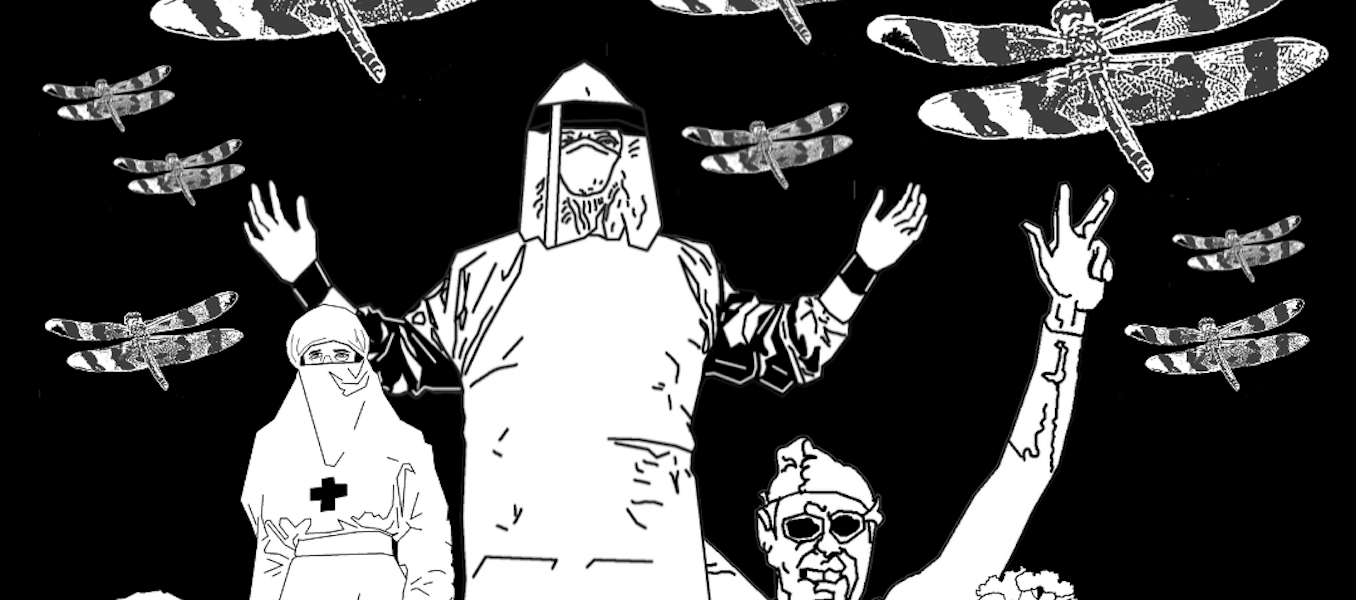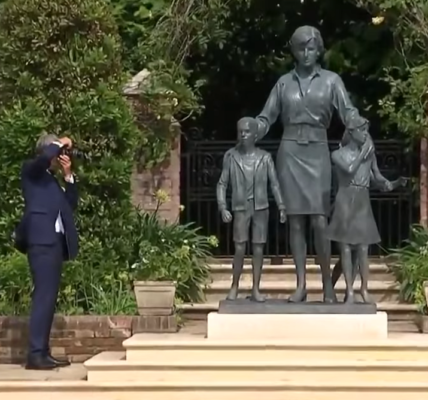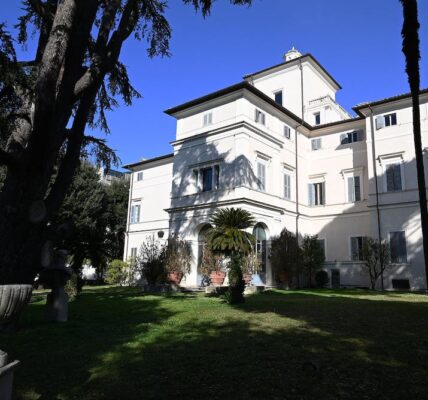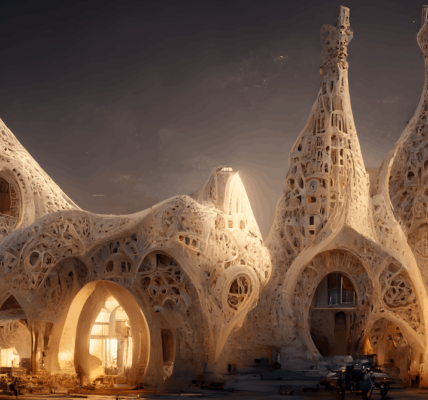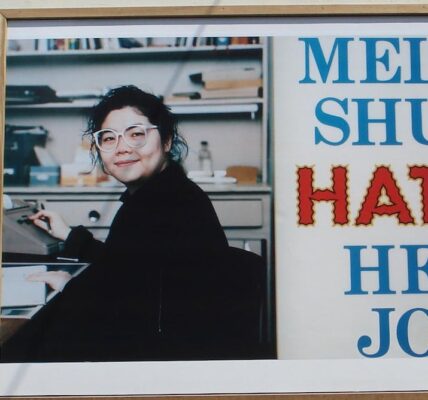What this collaboration between artists and health-care leaders teaches us about living through COVID-19
A new project that spotlights the strain from COVID-19 on our health systems and the people who work in them has invited health-care leaders and artists to create artworks that illuminate what it has been like leading, working and living through the pandemic.
The culmination of this collaboration is Topsy Turvy, an interactive digital exhibition initiated by the Knowledge Translation Strategic Platform of Maridulu Budyari Gumal SPHERE (Sydney Partnership for Health Education Research and Enterprise) whose purpose is to change the future of health care.
Topsy Turvy is a random image generator that makes combinations from a bank of drawings and text inspired by experiences of COVID-19. Users can opt to keep, delete and resize until they feel they have an image that resonates.
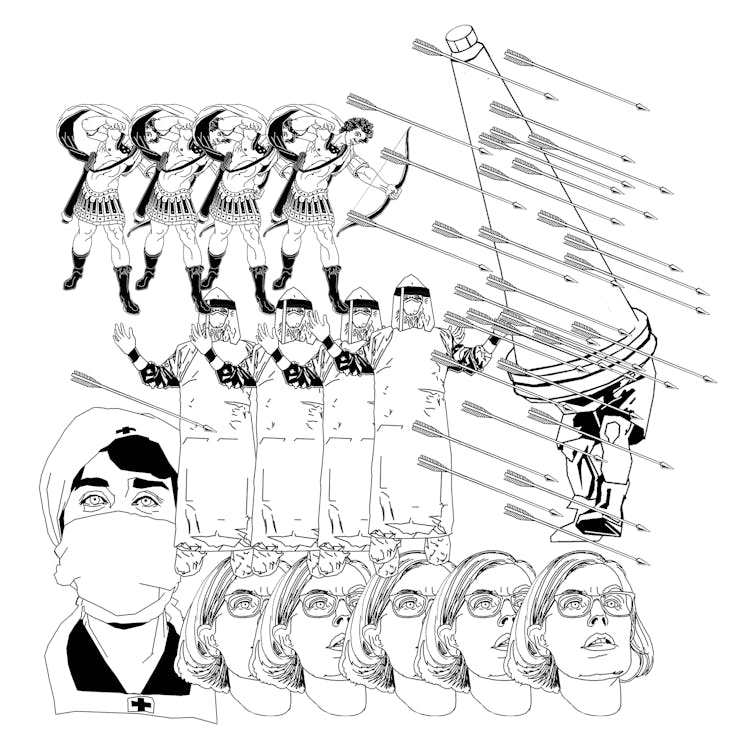
To create Topsy Turvy, 15 leaders affiliated with SPHERE shared images, songs, and reflections on working within and with the health system during the first wave of COVID-19 in 2020. Together, these contributions offered a rich palette of imagery and text — from recording a Dylan-esque song to a meditative movie of dragonflies over a lilypond.
Topsy Turvy was created to translate diverse experiences of COVID-19 through drawings, text and sound. In turn these elements have been transformed into an interactive digital platform where people can create visual expressions of their own.
Art in health
Creative responses to health(care) and well-being are on the rise in health-care settings and in the arts.
Arts-based approaches enable people to connect, express themselves and share knowledge about important health and social issues. Some experiences, such as physical or emotional pain, can be hard to put into words, and the arts offer alternative ways to explore and convey them.
These projects can also engage diverse populations, generate empathy and tackle inequalities.

Collaborative storytelling
For Topsy Turvy, artist and creative director (and one of the authors of this piece) Barbara Doran, and artists Anton Pulvirenti, Peter Maple and Annie McKinnon took stories provided by health-care leaders and used them as sources to create an interactive digital environment, giving audiences an opportunity to create their own COVID-19 collage. Using the platform, audiences can reinterpret the leaders’ contributions anew to tell their own story.
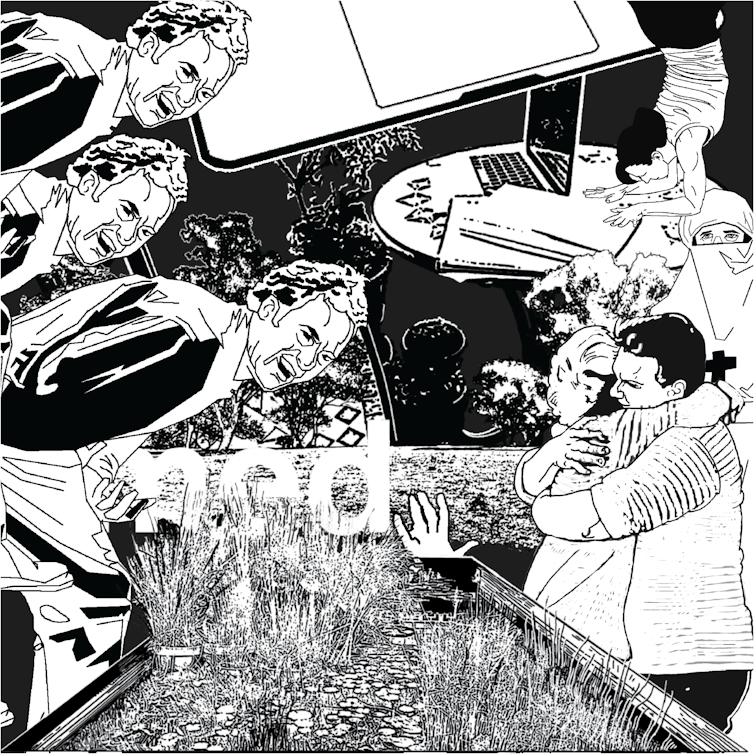
Peter Maple described how the words and photographic materials provided suggest feelings, rhythms and prevailing moods. Anton approaches drawing as an act of listening where he looks for common themes while imagining how drawing styles can open up a kind of non-verbal conversation with the storytellers. Annie McKinnon created this interactive digital exhibition akin to a live concert, where audiences can dance and make experiences together.
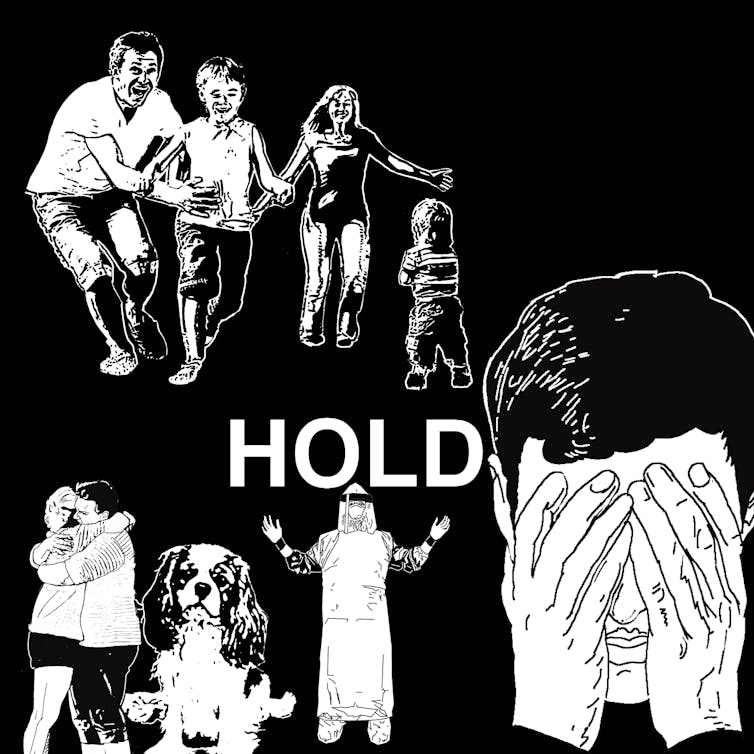
The leaders who contributed to this exhibition lead large teams within health-care organisations. Peter Joseph, the Chairman of the Black Dog Institute, took up winter ocean swimming as a new COVID-19 activity. For the Topsy Turvy exhibition, he shared a photograph of six winter ocean swimmers. He wrote:
COVID has demanded we keep perspective and think about what is important and not get captured by the conditions. I have learnt to be more open and expansive, understanding that in the grand scheme of things, we are tiny and here for such a short time.
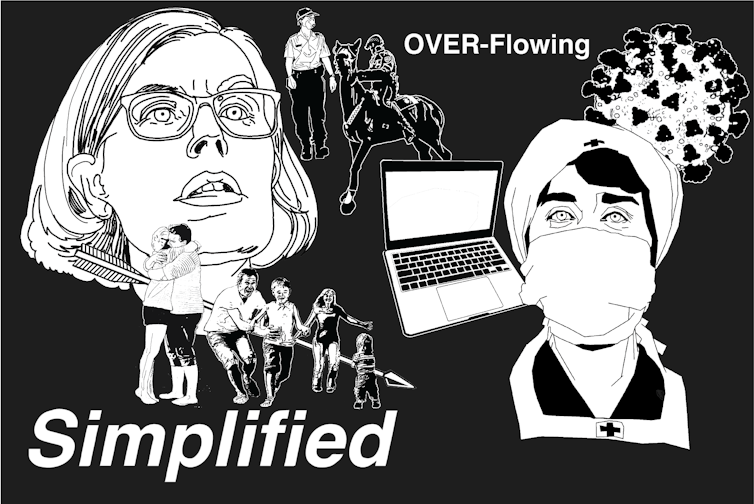
Amanda Larkin, the Chief Executive of South Western Sydney Local Health District, located in a COVID-19 hotspot, celebrated “the power of collaboration at a large-scale, and the changes that can be achieved”. Kate McGrath at the University of Technology Sydney, agreed: in research, education and industry “imaginary and self-created divisions between disciplines and institutions disappear when faced with this level of change.”
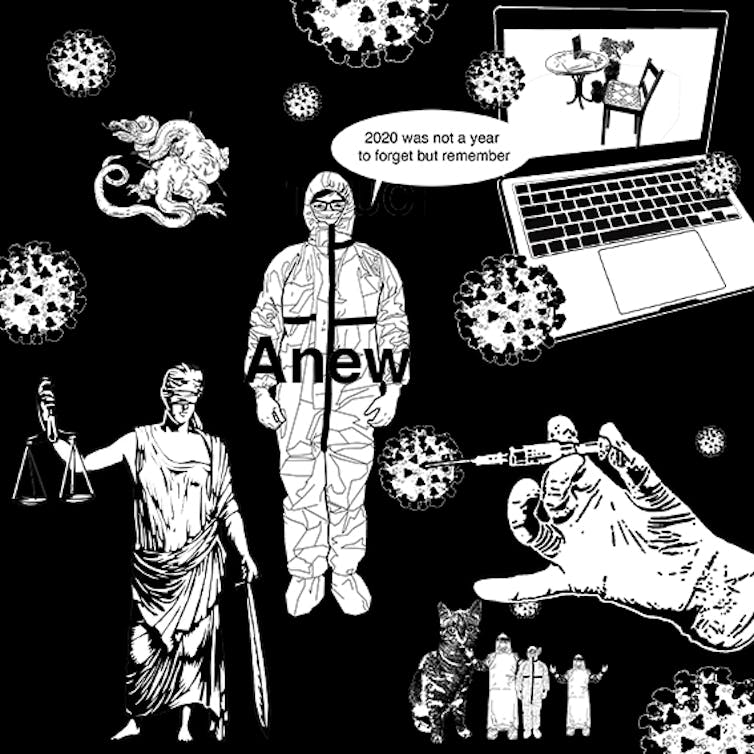
Les Bokey, Professor of Surgery and Clinical Dean at Western Sydney University, wrote about “a very rapid adaptation to a new environment”. This included changing operating rooms to deal only with emergencies and category 1 patients. “This has been a year to remember, rather one to forget”, he noted.
Working creatively in 2021
The executive director of SPHERE, Mark Parsons, reflected:
Unsurprisingly, in 2021, themes continue to resonate. The COVID-19 situation in Sydney has placed enormous challenges on our health systems. Sometimes, the systems in place aren’t able to reach impacted communities quickly. We need to work creatively to be able to respond better.
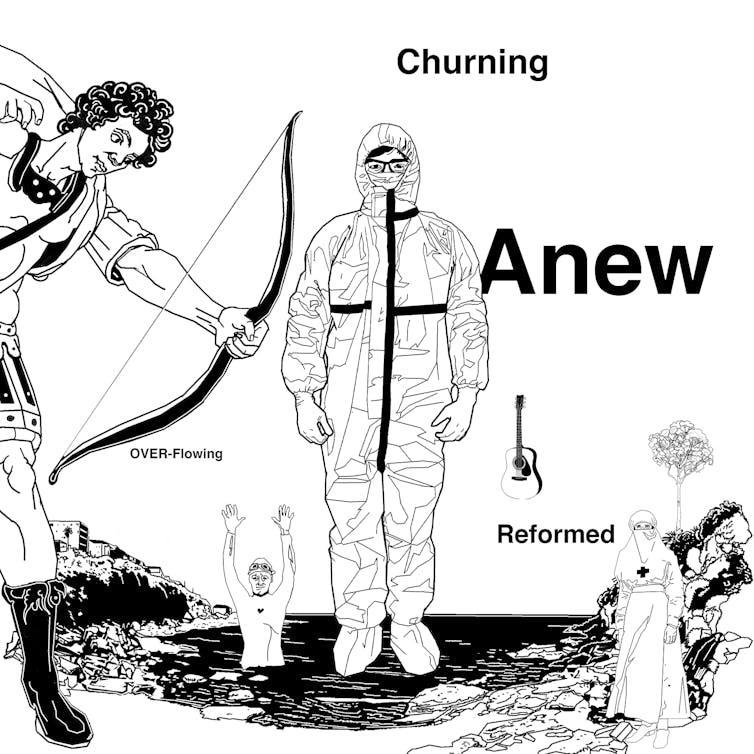
Read more:
The importance of art in the time of coronavirus
Since launching the exhibition, new collages and reflections have been shared. For Katrina Moore, Program and Community Manager at the University of Technology Sydney, the experience of interacting with Topsy Turvy made her:
think about the health sector, how many different perspectives and experiences there are of the current situation […] My image was quite layered and busy… a reflection of my mind at the moment I guess.
You can create your own collage at Topsy Turvy and view the growing gallery on the #sphereintheknow Instagram page.

